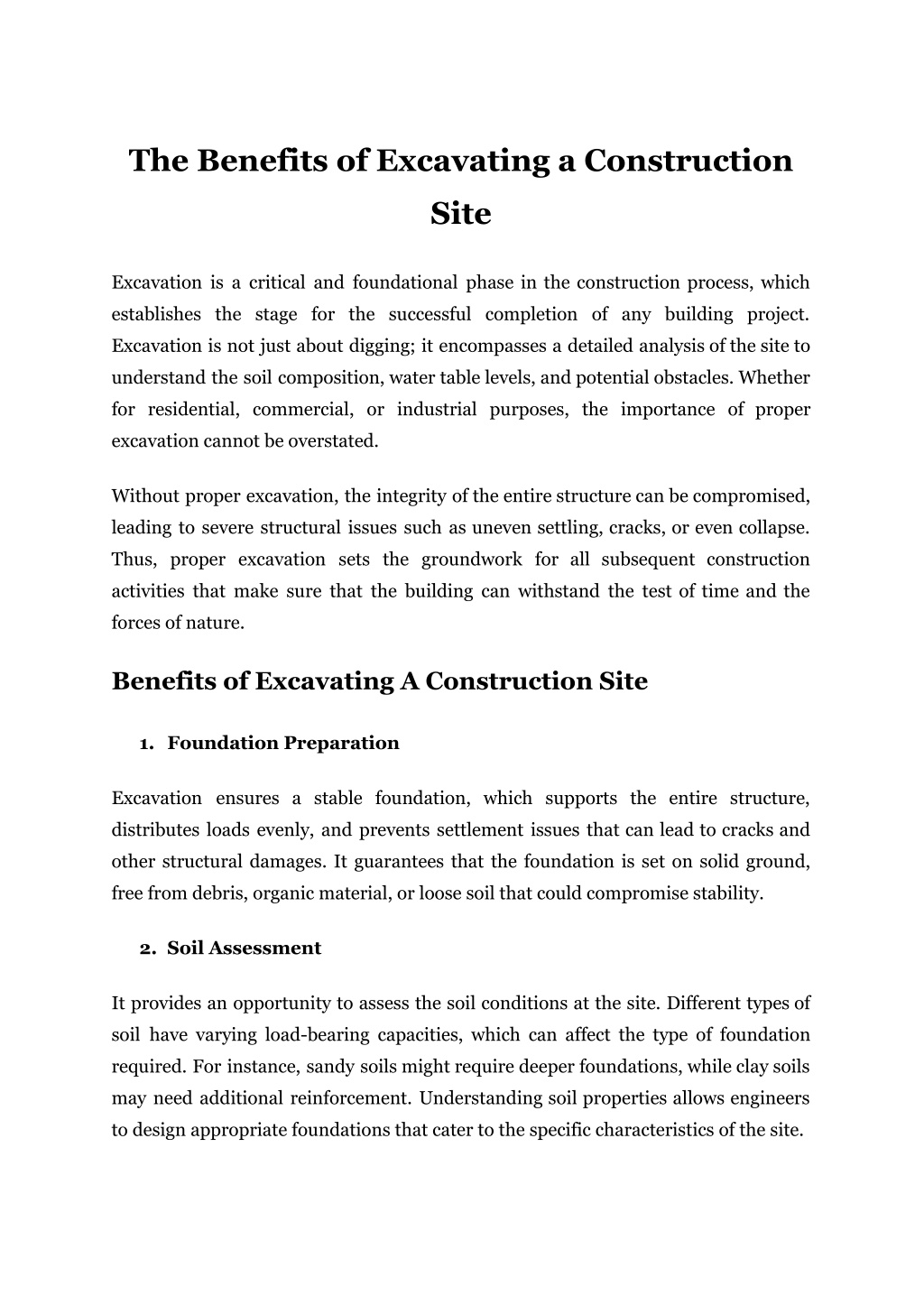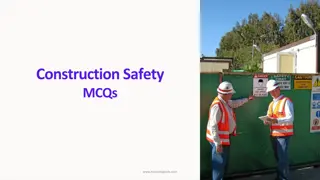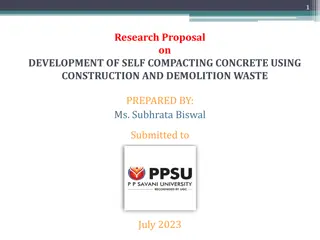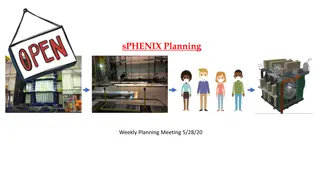
The Benefits of Excavating a Construction Site
By thoroughly preparing the site, Ivoryton excavation services streamline thensubsequent phases of construction. A clear, level, and stable site culminates in easiernand faster installation of foundations, structures, and utilities. This efficiencyntranslates to shorter project timelines and cost saving
Download Presentation
Please find below an Image/Link to download the presentation.
The content on the website is provided AS IS for your information and personal use only. It may not be sold, licensed, or shared on other websites without obtaining consent from the author. Download presentation by click this link. If you encounter any issues during the download, it is possible that the publisher has removed the file from their server.
Presentation Transcript
The Benefits of Excavating a Construction Site Excavation is a critical and foundational phase in the construction process, which establishes the stage for the successful completion of any building project. Excavation is not just about digging; it encompasses a detailed analysis of the site to understand the soil composition, water table levels, and potential obstacles. Whether for residential, commercial, or industrial purposes, the importance of proper excavation cannot be overstated. Without proper excavation, the integrity of the entire structure can be compromised, leading to severe structural issues such as uneven settling, cracks, or even collapse. Thus, proper excavation sets the groundwork for all subsequent construction activities that make sure that the building can withstand the test of time and the forces of nature. Benefits of Excavating A Construction Site 1. Foundation Preparation Excavation ensures a stable foundation, which supports the entire structure, distributes loads evenly, and prevents settlement issues that can lead to cracks and other structural damages. It guarantees that the foundation is set on solid ground, free from debris, organic material, or loose soil that could compromise stability. 2. Soil Assessment It provides an opportunity to assess the soil conditions at the site. Different types of soil have varying load-bearing capacities, which can affect the type of foundation required. For instance, sandy soils might require deeper foundations, while clay soils may need additional reinforcement. Understanding soil properties allows engineers to design appropriate foundations that cater to the specific characteristics of the site.
3. Clearing and Grading Before construction can begin, the site must be cleared of any obstacles, such as trees, rocks, and old structures. Excavation entails clearing and grading the land to create a level surface, which facilitates the layout and construction of new buildings. Grading results in proper drainage and stops water accumulation that can weaken the foundation and lead to structural problems. 4. Utility Installation Excavation is crucial for installing underground utilities such as water, sewer, gas, and electrical lines. These utilities need to be carefully planned and laid out before the construction of the main structure. Commercial excavating contractors in CT install these utilities at the correct depths and locations while avoiding future disruptions and guaranteeing easy access for maintenance. 5. Preventing Hazards It plays a vital role in identifying and mitigating potential hazards. Unstable ground, underground water sources, and hidden debris can pose significant risks to construction workers and equipment. Contractors can identify and address these hazards by implementing safety measures to protect workers and build a secure construction environment by thoroughly excavating the site. 6. Compliance with Regulations Excavation is governed by stringent safety regulations and standards designed to protect workers and the public. Proper excavation practices help ensure compliance with these regulations, minimising the risk of accidents and legal liabilities. Regular inspections and adherence to safety protocols during excavation are essential for maintaining a safe and compliant construction site. 7. Accurate Project Planning A well-executed excavation provides a clear and accurate understanding of the site s topography and subsurface conditions. This information is invaluable for project
planning and design since it allows for precise calculations and resource allocation. Accurate site data helps avert unexpected issues during construction, reduces delays, and avoids cost overruns. 8. Streamlining Construction By thoroughly preparing the site, Ivoryton excavation services streamline the subsequent phases of construction. A clear, level, and stable site culminates in easier and faster installation of foundations, structures, and utilities. This efficiency translates to shorter project timelines and cost savings. 9. Erosion Control Excavation includes measures to control soil erosion, which is crucial for protecting the environment and maintaining the stability of the construction site. Techniques such as silt fencing, sediment basins, and vegetation cover are used to decrease the likelihood of soil displacement and water pollution. Effective erosion control determines that construction activities do not negatively impact the surrounding ecosystem. 10. Sustainable Practices Modern excavation practices increasingly incorporate sustainable methods to minimise environmental impact. This involves recycling excavated materials, using eco-friendly equipment, and implementing site restoration plans. Sustainable excavation not only protects the environment but also enhances the long-term viability and reputation of construction projects. 11. Precision Excavation Advancements in technology have revolutionised the excavation process, as it has introduced tools and equipment that improve precision and efficiency. GPS-guided machinery, laser scanning, and 3D modelling make exact excavation possible according to design specifications. These technologies reduce human error, boost accuracy, and uplift the overall quality of the excavation work.
12. Remote Monitoring Remote monitoring systems enable real-time oversight of excavation activities while ensuring adherence to safety protocols and project timelines. These systems provide valuable data on equipment performance, soil conditions, and site progress. It enhances site management and contributes to the successful execution of excavation tasks. 13. Commercial Projects For commercial projects, excavation is crucial for supporting large structures such as office buildings, shopping centres, and hotels. These projects often involve complex utility installations and require precise grading and soil stabilisation. Examples of successful commercial excavations demonstrate how meticulous planning and execution lead to efficient construction and robust, enduring structures. 14. Infrastructure Development Infrastructure projects, including roads, bridges, and tunnels, rely heavily on excavation for their foundation and structural integrity. The excavation phase addresses challenges such as varying soil conditions, water management, and load-bearing capacity. Case studies of infrastructure projects illustrate the importance of excavation in creating safe, reliable, and long-lasting public works. Conclusion Excavating a construction site is a foundational process that underpins the success of any building project. As technology continues to advance, the precision and effectiveness of excavation will only improve, which will reinforce its critical role in the construction industry. Whether for residential, commercial, or infrastructure projects, our expert Ivoryton excavating contractors lay the groundwork for a safe and successful build. So, contact our team at LIBBY Property and learn more about our Ivoryton excavation services.















































